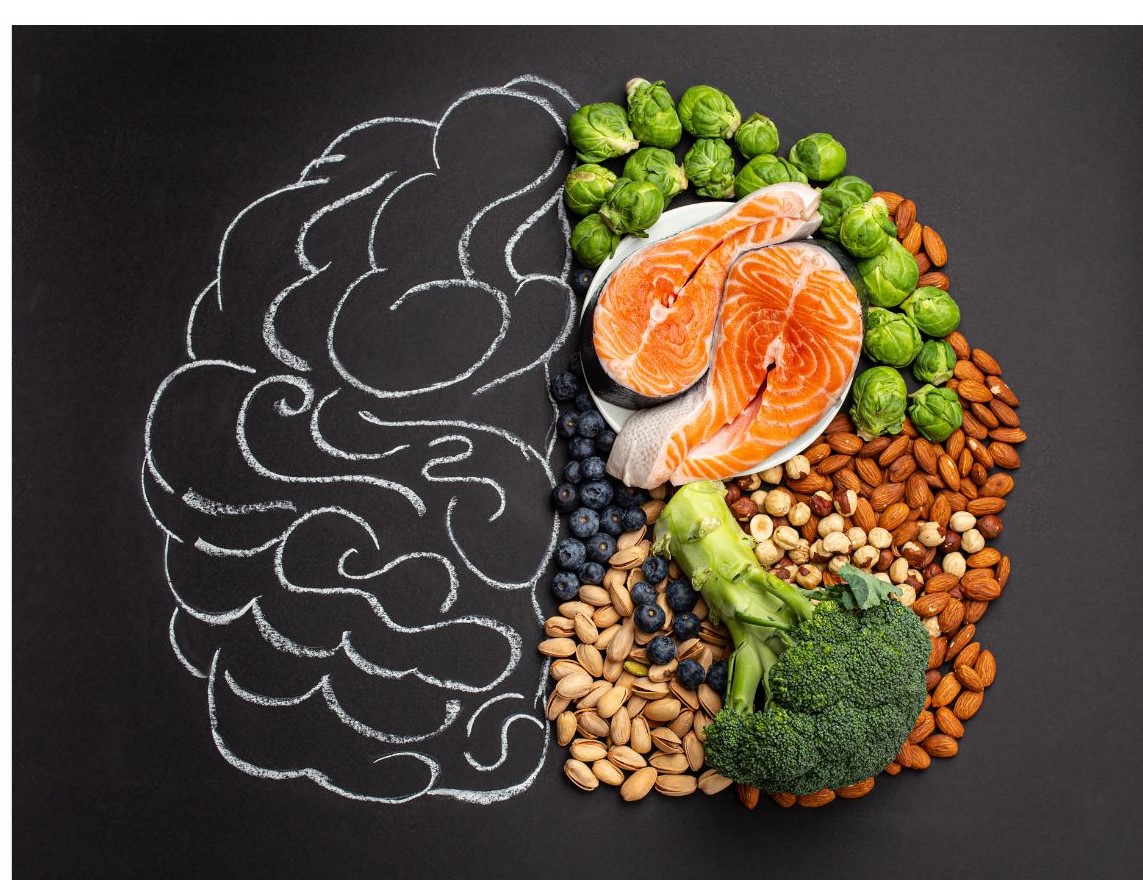Feeling blue and wondering if your diet could be the culprit? The connection between nutrition and mental health has become a hot topic in recent years, especially for women, who are twice as likely to experience depressive symptoms as men. Let’s break down the potential benefits of a protein-rich diet in combating depression, discovering the foods that can boost mental wellness & help you get a handle on troublesome symptoms.
Whether you’re a woman struggling with depression or simply want to promote mental health, read on to discover how your diet can positively impact your mood.
No matter where you are on your health journey, the Circle can help you achieve your best self—explore my holistic community!
Depression in Women is Increasing
Depression is an increasingly common yet serious mood disorder that affects millions of women worldwide. Women are nearly twice as likely as men to experience symptoms such as persistent sadness, anxiety, and fatigue (1). Hormonal changes, social pressures, and life events like pregnancy and menopause contribute to this heightened risk. It’s essential to understand these unique challenges to better address them.
Women often experience depression differently, exhibiting symptoms that can range from irritability and anger to physical ailments like headaches and stomach problems. It doesn’t always look like the hopelessness or sadness that you see in media.
And when symptoms disrupt daily life, making it difficult to focus, work, or even enjoy activities that once brought joy, it’s so important to recognize the issue and have a game plan. By understanding the unique expression of depression in women, we can take more targeted steps to manage it.
Depression takes a toll on physical health
Studies show that women with depression are at higher risk for chronic conditions like heart disease and diabetes. So it stands to reason that the connection also works in reverse too—taking care of your physical body also benefits your mental health.
Watch: Hormones & Mental Health: Making Sense of Mood Swings
Protein in Mental Health

Protein isn’t just for building muscles; it plays a crucial role in brain function and mental health, too. Proteins are made up of amino acids, the building blocks that help produce neurotransmitters like serotonin and dopamine. These chemicals are vital for regulating mood, sleep, and appetite—all of which can be disrupted during depression.
A study published in the Nutrients found that higher protein intake was associated with lower levels of depressive symptoms, and specifically in middle-aged women. This makes sense when you consider that protein helps maintain balanced blood sugar levels, providing steady energy and preventing mood swings. Additionally, certain amino acids like tryptophan can convert into serotonin, often dubbed the “feel-good hormone.”
The National Health and Nutrition Examination Survey from 2007-2014 supports this, revealing an inverse relationship between total protein intake and the risk of depressive symptoms. This means that the more protein women consumed, the lower their risk of experiencing depression (3). With this in mind, incorporating more protein into your diet could be a simple yet effective way to enhance mental wellness.
Read: How Much Protein Do I Really Need?
Foods Rich in Protein
When it comes to boosting your protein intake, nature has provided us with a plethora of options. Here are some protein-rich foods that are particularly beneficial for mental health:
- Lean Meats like chicken and turkey are excellent sources of tryptophan, which aids in serotonin production.
- Fish such as salmon and mackerel are not only high in protein but also rich in omega-3 fatty acids, known for reducing inflammation and improving brain function.
- Eggs are versatile and packed with essential amino acids that the body can’t produce on its own.
- Legumes like lentils and chickpeas are plant-based protein powerhouses that also offer fiber, aiding digestion and overall health.
- Nuts and Seeds, including almonds and chia seeds, provide not only protein but also healthy fats and antioxidants.
- Dairy Products such as Greek yogurt and cottage cheese are great for snacking and can help maintain balanced blood sugar levels.
- Clean Protein Powders: Grass-fed whey or hydrolyzed pea protein can help you meet your goals on busy days, or if you have trouble getting enough protein in your diet. Learn more about my protein recommendations in this episode!
Incorporating these foods into your diet can help ensure you’re getting the protein you need to support both your physical and mental well-being.
Other Nutrients that Support Mental Wellness
While protein is essential, it’s not the only nutrient that can help combat depression. Several other nutrients play a vital role in mental wellness:
- Omega-3 Fatty Acids found in fatty fish, flaxseeds, and walnuts have been shown to reduce symptoms of depression (4).
- Vitamin D, often referred to as the “sunshine vitamin,” can be found in fortified milk, eggs, and fish, and is crucial for mood regulation.
- B Vitamins including B6, B12, and folate, found in leafy greens, legumes, and whole grains, are essential for brain health and the production of neurotransmitters.
- Magnesium found in nuts, seeds, and whole grains can help regulate neurotransmitters and has been linked to reduced symptoms of depression.
A balanced diet rich in these nutrients can provide a comprehensive approach to improving mental health and well-being.
Shop: Serenease contains 6 of the most functional forms of magnesium for mood, mental health, and hormone balance.
Recipes and Meal Plans for Mental Health
Incorporating these protein-rich foods and essential nutrients into your daily meals doesn’t have to be complicated. Here are some easy recipes and a one-week meal plan to get you started:
Breakfast:
- Greek Yogurt Parfait with fresh berries, chia seeds, and a drizzle of honey.
- Spinach and Feta Omelet served with whole-grain toast.

Lunch:
- Quinoa Salad with chickpeas, cherry tomatoes, cucumbers, and a lemon-tahini dressing.
- Grilled Chicken Wrap with avocado, lettuce, and a sprinkle of sunflower seeds.
Dinner:
- Baked Salmon with a side of roasted vegetables and brown rice.
- Lentil Soup with carrots, celery, and a dash of turmeric for added anti-inflammatory benefits.
Snacks:
- Almonds or a handful of spiced mixed nuts.
- Hummus with sliced bell peppers and cucumber sticks.
These recipes and meal plans are designed to be easy to prepare and incorporate a variety of protein-rich foods and essential nutrients to support mental wellness. Get more protein recipes here!
Lifestyle Tips to Enhance the Effects of Diet
While diet plays a crucial role in mental health, it’s just one piece of the puzzle. Here are some lifestyle tips to complement your dietary changes and enhance mental wellness:
- Exercise Regularly: Physical activity releases endorphins, which can help improve mood and reduce symptoms of depression (5). Aim for at least 30 minutes of moderate exercise most days of the week.
- Prioritize Sleep: Quality sleep is essential for mental health. Establish a regular sleep routine, aiming for 7-9 hours of sleep each night.
- Manage Stress: Practice stress-reducing techniques such as meditation, deep breathing, and mindfulness to help manage stress and improve mental well-being.
- Stay Connected: Social connections are vital for mental health. Make time for family and friends, and consider joining a support group or community activities to stay connected.
- Limit Alcohol and Caffeine: Excessive consumption of alcohol and caffeine can exacerbate symptoms of depression. Try to limit your intake and opt for healthier alternatives like herbal tea.
By incorporating these lifestyle tips along with a balanced diet, you can create a holistic approach to improving your mental wellness.
What to Remember
The link between nutrition and mental health is undeniable, and understanding the role of protein and other essential nutrients can make a significant difference in combating depression. By incorporating protein-rich foods, essential nutrients, and adopting healthy lifestyle habits, you can take proactive steps towards improving depressive symptoms, anxious thoughts, and brain fog.
Making small, manageable changes to your diet and lifestyle can have a profound impact on your mental health. If you’re looking for personalized guidance on your mental wellness journey, consider booking a consultation with a knowledgeable and compassionate provider. Together, we can develop a tailored plan to support your mental health and well-being.


